
In a world where news headlines often read like apocalyptic movie trailers, magical places exist where people leave their doors unlocked, walk home after midnight without pepper spray, and police officers’ biggest challenges involve rescuing cats from trees.
Welcome to the global safety elite of 2025—countries where crime statistics are so low that accountants’ pulses race excitedly. While the rest of us install another deadbolt and subscribe to neighbourhood watch apps, citizens in these nations are busy worrying about more pressing matters, like whether their universal healthcare is too comprehensive or if their work-life balance is excessively healthy!
 Zurich, Switzerland; Photo- Switzerland Tour
Zurich, Switzerland; Photo- Switzerland TourUnderstanding the Global Peace Index
The Global Peace Index 2024 ranks 163 countries—covering 99.7% of the world’s population—based on 23 qualitative and quantitative factors. These include perceived criminality, military expenditure, internal conflicts, and political instability.
The world’s safest countries share several commonalities: high levels of wealth, robust social welfare systems, excellent education, effective criminal justice systems, and governments capable of maintaining healthy relationships with their citizens. Other contributing factors include low poverty rates, economic stability, cultural attitudes toward law enforcement, gun control measures, minimal civil unrest, political stability, accessible healthcare, and strong digital security.
Here are the Top 10 safest countries in the world. Each country receives a score out of 5, with lower scores indicating a more peaceful nation.
1. Iceland- Peace Index Score 2024: 1.112
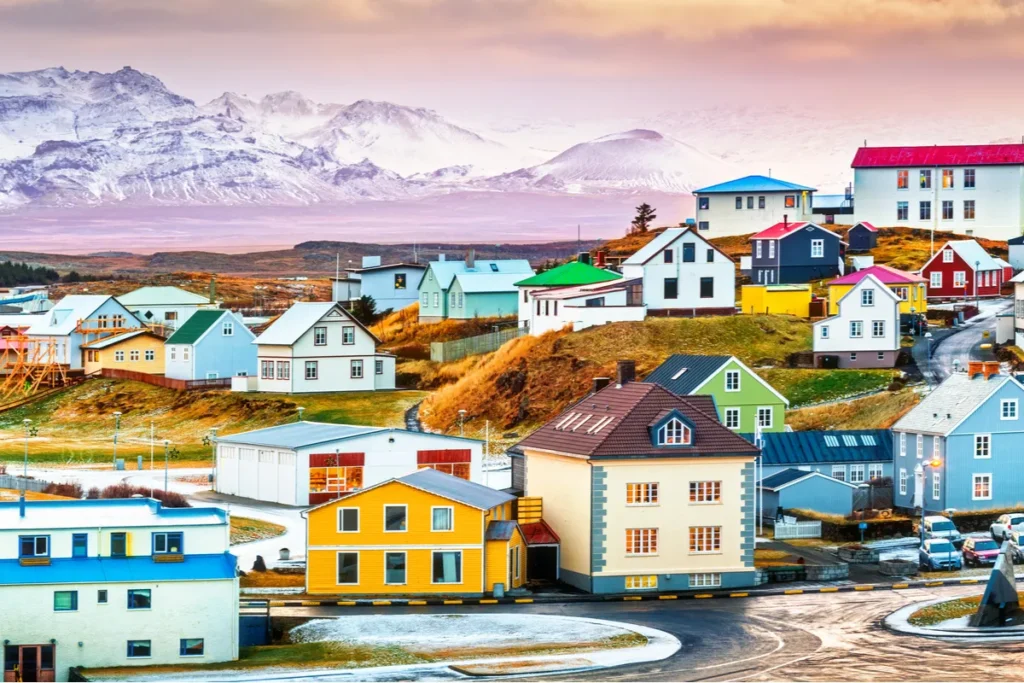 Photo- Iceland 24
Photo- Iceland 24Iceland remains the undisputed champion of global peace, holding the number one position since 2008. This Nordic island nation has mastered the art of tranquillity with its low crime rates and policy of staying out of external conflicts—it doesn’t even maintain an army.
Personal safety: While Iceland’s crime rates are admirably low, visitors should still exercise basic precautions.
Public health: Icelanders enjoy a life expectancy of 82.6 years, surpassing the EU average of 80.9 years. The healthcare system is primarily tax-funded, though patients contribute some costs, capped at €251 per month.
Environmental safety: Iceland exceeds the World Health Organisation’s air quality guidelines and has few dangerous wildlife species, making outdoor activities like hiking particularly safe. While earthquakes and volcanic eruptions occur periodically, they rarely endanger populated areas.
2. Ireland – Peace Index Score 2024: 1.303
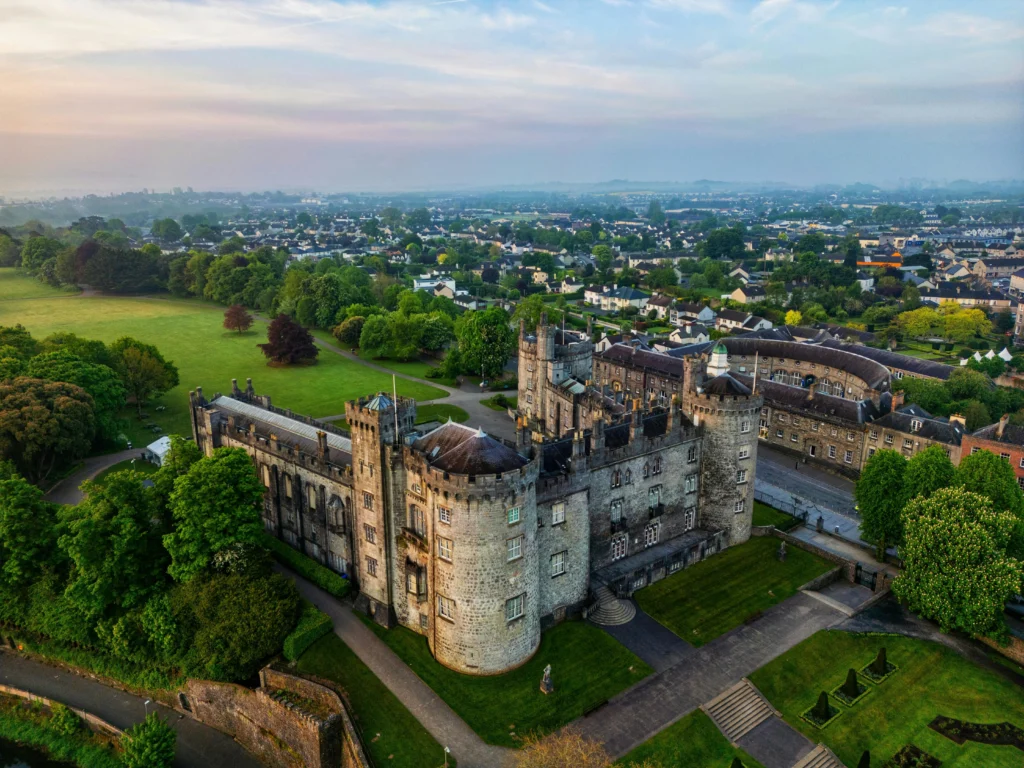 Kilkenny Castle, Ireland; Photo- Pexels
Kilkenny Castle, Ireland; Photo- PexelsIreland claims second place with a score of 1.303, improving from its third-place ranking in 2023. The national police force, Garda Síochána (meaning “guardians of the peace”), oversees safety matters effectively. Ireland’s strong, stable economy, minimal internal conflicts, and welcoming attitude toward migrants further contribute to its peaceful standing.
Personal safety: While Ireland’s crime rates have generally decreased in recent years, some areas of concern persist. Theft, fraud, and recorded crime saw increases in 2023. Despite its complex history, modern Ireland is considered very safe, with negligible risk from conflict-related dangers.
Public health: Ireland has allocated €25.8 billion for health services in 2025—a €2.94 billion increase from 2024.
Environmental safety: Ireland has made progress in improving urban air quality and reducing landfill dependence, though it now exports substantial waste. The Climate Action Plan 2024 provides a roadmap to halve carbon emissions by 2030 and achieve net zero by 2050.
3. Austria – Peace Index Score 2024: 1.313
 Palace of Schönbrunn, Vienna, Austria; Photo- Wikipedia
Palace of Schönbrunn, Vienna, Austria; Photo- Wikipedia
Austria secures third place with a score of 1.313, performing admirably across multiple Global Peace Index domains. Most notably, the economic costs of violence in Austria amount to just 4.23% of its GDP, among the lowest worldwide. The country’s low crime rates and strong judicial system reinforce its peaceful environment.
Personal safety: While serious crime remains rare in Austria, petty crime has seen a slight increase, particularly in urban areas like Vienna.
Public health: Austria’s health system provides nearly universal coverage with generally good accessibility. Approximately 40% of healthcare funding comes from taxation, with the remainder derived from social health insurance contributions.
Environmental safety: Austria’s environmental record has been concerning, with greenhouse gas emissions increasing by 5% over the past three decades. This makes it one of just six EU countries showing no improvement during this period. However, the nation has established an ambitious target of carbon neutrality by 2040.
4. New Zealand – Peace Index Score 2024: 1.323
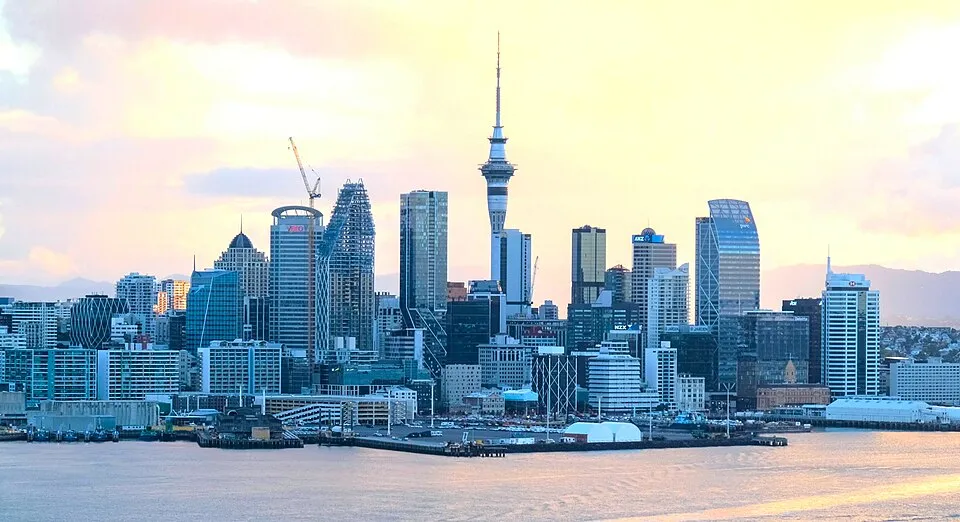 Waiheke, Auckland city, New Zealand; Photo- Wikipedia
Waiheke, Auckland city, New Zealand; Photo- WikipediaNew Zealand ranks as the most peaceful country in the Asia-Pacific region and fourth globally, with a score of 1.323. Its rating dipped slightly from 2023, primarily due to increased military expenditure as a percentage of GDP. With just 5.1 million inhabitants, New Zealand’s low population density fosters strong community investment, contributing to low crime rates.
Personal safety: New Zealand offers exceptional safety for residents and expatriates, particularly those with families. Crime rates remain remarkably low compared to global averages. New Zealanders are renowned for their friendly, accepting nature, and communities typically exhibit strong solidarity.
Public health: The country maintains a universal healthcare system that provides free or subsidised care for most residents, including expatriates with residency status or working visas of at least two years. New Zealand’s Vote Health package allocates NZ$16.68 billion for 2024-2026.
Environmental safety: Rising sea levels are increasing the frequency of coastal flooding, potentially creating costs for homeowners and residents in affected areas. Aotearoa, New Zealand’s national environmental regulator, is working to improve environmental indicators, including a target of net-zero emissions by 2050.
5. Singapore – Peace Index Score 2024: 1.339
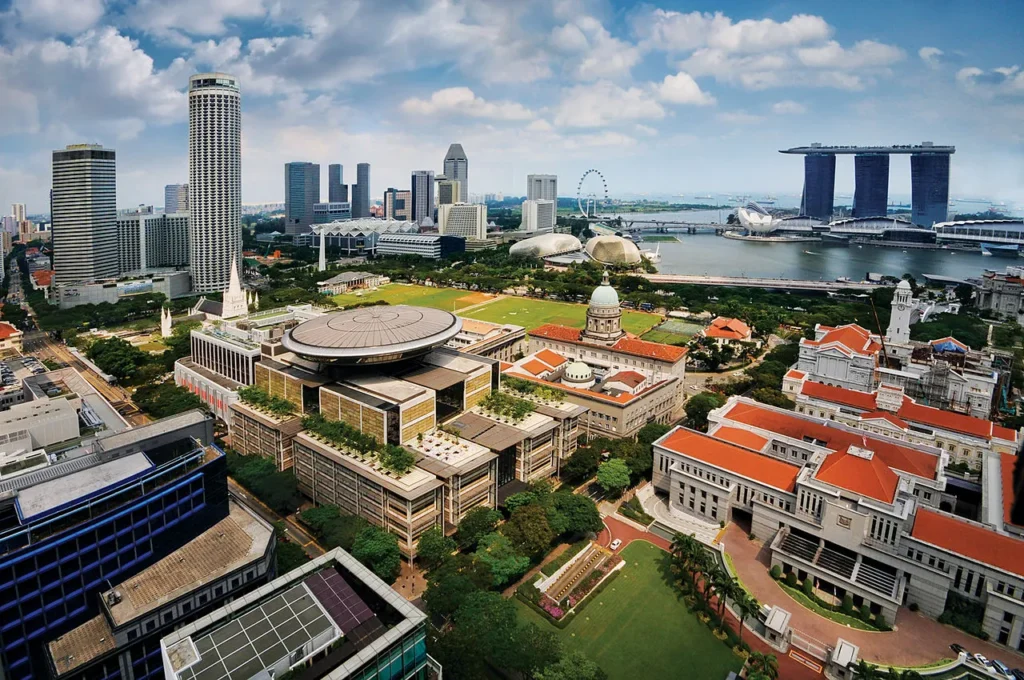 Civic District, Singapore; Photo- Wikipedia
Civic District, Singapore; Photo- WikipediaSingapore joins the Global Peace Index top five for the first time, advancing from sixth place in 2023 with a score of 1.339. The city-state ranks second in peace in the Asia-Pacific region, behind New Zealand. Singapore particularly excels in the domains of safety and security and ongoing conflict.
Personal safety: While serious crime remains rare in Singapore, petty offences like pickpocketing can occur, necessitating basic security precautions. The country’s low crime rates largely result from strict laws and rigorous enforcement.
Public health: Singapore’s healthcare quality matches or exceeds that of countries like Australia. Comprehensive insurance coverage is essential for residents and visitors. Those with prescription medications should obtain prior approval from authorities before bringing them into the country.
Environmental safety: Singapore generally maintains good air quality, though it can deteriorate during forest fire seasons, particularly during the monsoon period from August to October. Industrial pollution increasingly threatens air quality. Monsoons bring heavy rain and winds that can damage homes and infrastructure.
6. Switzerland – Peace Index Score 2024: 1.357
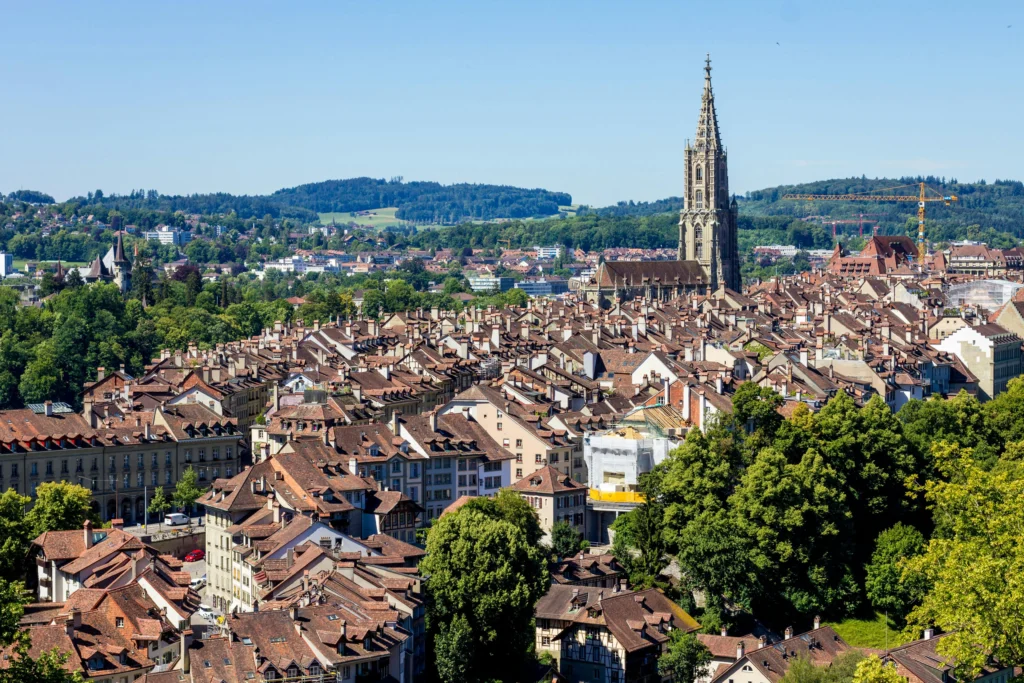 Bern, Switzerland; Photo- Pexels
Bern, Switzerland; Photo- PexelsSwitzerland secures sixth place on the Global Peace Index with a score of 1.357. This Alpine nation’s commitment to neutrality dates back to the Treaty of Paris in 1815, keeping it out of both World Wars and contributing significantly to its peaceful reputation. Switzerland consistently ranks among the world’s wealthiest countries, with GDP per capita exceeding $93,000 in 2024.
Personal safety: Switzerland maintains extraordinarily low violent crime rates, with homicide rates among the world’s lowest at 0.5 per 100,000 inhabitants. Even in major cities like Zurich and Geneva, residents report feeling safe walking alone at night. The country’s efficient police forces maintain a visible presence while respecting civil liberties.
Public health: The Swiss healthcare system consistently ranks among the world’s best, combining universal coverage with high-quality care. The average life expectancy stands at an impressive 84.3 years, among the world’s highest.
Environmental safety: Switzerland’s environmental quality ranks among Europe’s best, with stringent regulations protecting air and water quality. Over 70% of municipal waste is recycled—one of the world’s highest rates. The country’s commitment to environmental protection extends to its constitution, and its ambitious climate policies aim for carbon neutrality by 2050.
7. Portugal – Peace Index Score 2024: 1.375
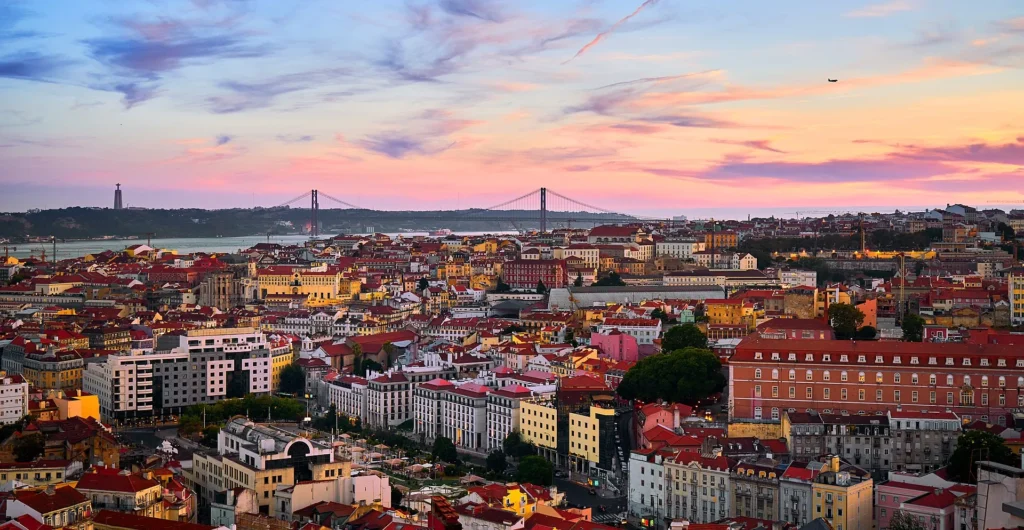 Lisbon, Portugal; Photo- Wikipedia
Lisbon, Portugal; Photo- WikipediaPortugal claims seventh place with a score of 1.375, continuing its impressive rise in peace rankings since economic reforms following the 2010-2014 financial crisis. Once considered Western Europe’s poor relation, Portugal has transformed into a model of social stability and progressive policies.
Personal safety: Portugal’s violent crime rates have decreased steadily over the past decade, with homicide rates falling to 0.7 per 100,000 inhabitants in 2024. The country has successfully avoided the terrorism affecting many European nations and maintains minimal involvement in international conflicts.
Public health: Portugal’s universal healthcare system provides comprehensive coverage to all residents. The country’s progressive drug policies, implemented in 2001, decriminalised personal possession of all drugs while emphasising treatment over punishment—a model that has significantly reduced drug-related harms.
Environmental safety: Portugal benefits from a generally benign natural environment with few extreme weather events. The primary environmental concerns include seasonal wildfires and coastal erosion affecting some areas. The country has made significant progress in air quality, with Lisbon and Porto implementing substantial vehicle emission restrictions since 2022.
8. Denmark – Peace Index Score 2024: 1.383
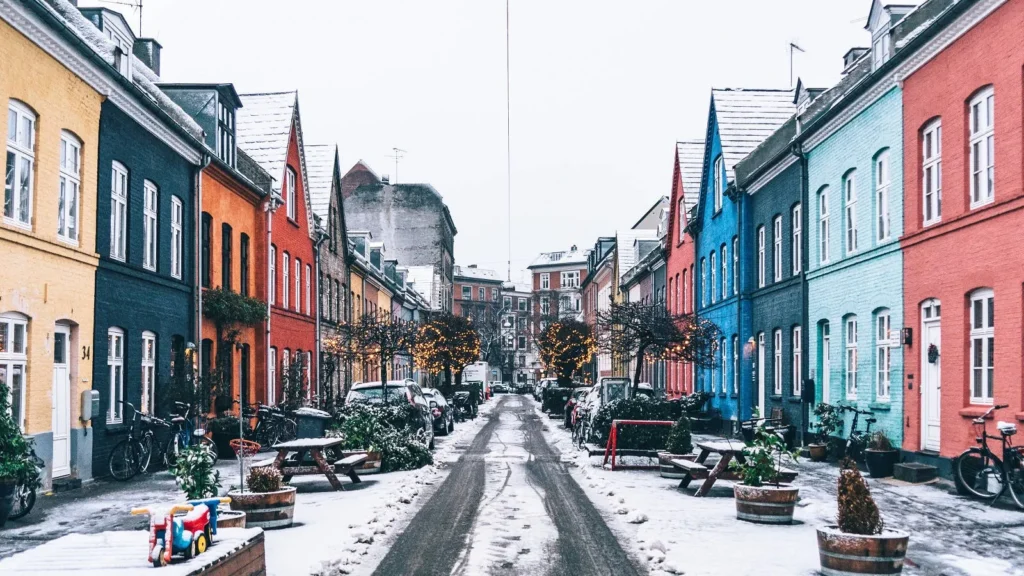 Copenhagen, Denmark; Photo- Visit Copenhagen
Copenhagen, Denmark; Photo- Visit CopenhagenDenmark takes eighth place with a score of 1.383. This Scandinavian nation consistently ranks near the top in global happiness indices, with its comprehensive welfare system and high social trust contributing significantly to its peaceful environment.
Personal safety: Denmark maintains remarkably low crime rates, with violent incidents particularly rare. The homicide rate stands at just 0.8 per 100,000 inhabitants. Even in Copenhagen, safety perceptions remain high, with 91% of residents reporting feeling safe walking alone at night. Danish police operate with a community-oriented approach, focusing on prevention rather than punishment.
Public health: Denmark’s healthcare system exemplifies the Nordic welfare model, providing universal access funded through progressive taxation. Waiting times for non-emergency procedures average among the lowest in Europe.
Environmental safety: Denmark faces few natural hazards beyond occasional North Sea storms. The country has implemented ambitious environmental policies, including plans to reduce carbon emissions by 70% by 2030 compared to 1990 levels. Water quality ranks among Europe’s highest, with 95% of coastal bathing sites receiving “excellent” ratings.
9. Slovenia – Peace Index Score 2024: 1.396
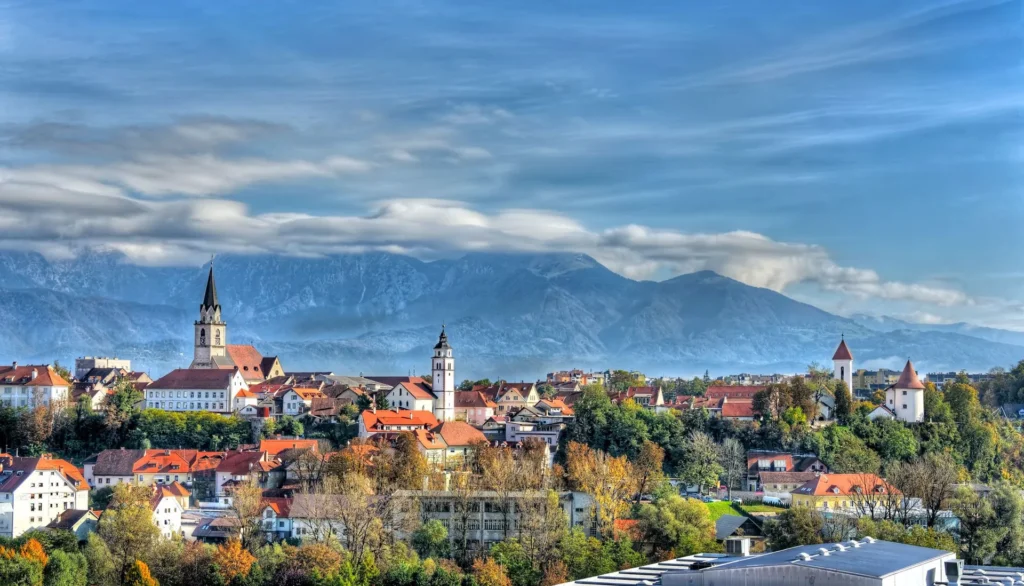 Kranj, Slovenia; Photo- Wikipedia
Kranj, Slovenia; Photo- WikipediaSlovenia achieves ninth place with a score of 1.396, remarkable for a nation that gained independence only in 1991 following the dissolution of Yugoslavia. This small Central European country has successfully established itself as a stable democracy with strong social cohesion.
Personal safety: Slovenia maintains exceptionally low crime rates, with a homicide rate of just 0.7 per 100,000 inhabitants. The country has largely avoided the political polarisation affecting many European nations, contributing to social stability. Slovenia’s police force operates with high professional standards and public trust.
Public health: Slovenia’s healthcare system provides universal coverage through a combination of public funding and complementary insurance. Slovenia’s pharmaceutical policies ensure medication affordability, with prescription costs capped for vulnerable populations. Life expectancy stands at 81.9 years, above the EU average.
Environmental safety: Slovenia benefits from exceptional environmental quality, with more than 60% of its territory covered by forests. Slovenia’s commitment to environmental protection is enshrined in its constitution, with over 37% of land falling under Natura 2000 protection—the highest percentage in the European Union.
10. Malaysia – Peace Index Score 2024: 1.403
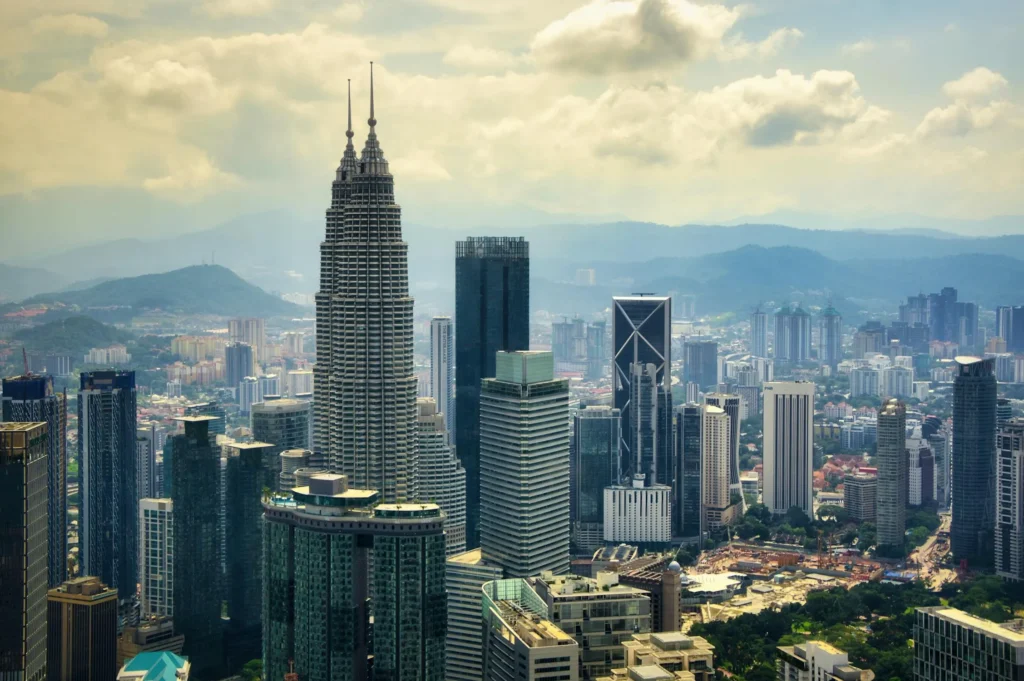 Malaysia; Photo- Pexels
Malaysia; Photo- PexelsMalaysia rounds out the top ten with a score of 1.403, representing a remarkable improvement from its 19th place ranking in 2023 and an 8.6% enhancement in its index score. This Southeast Asian nation’s multicultural society and economic development create a foundation for increased peace and stability.
Personal safety: Malaysia has successfully reduced crime rates over the past decade, with violent crime decreasing by approximately 40% since 2015. While petty theft and scams remain concerns in tourist areas and major cities like Kuala Lumpur, violent crime against visitors is uncommon.
Public health: Malaysia operates a two-tier healthcare system combining public services for all citizens with a private system offering additional options. The country has achieved near-universal healthcare coverage while maintaining costs at approximately 4% of GDP, significantly lower than most developed nations.
Environmental safety: Malaysia faces several environmental challenges, including seasonal haze from forest fires and occasional flooding during monsoon seasons. Urban air quality remains a concern in major cities, though regulations have tightened significantly since 2020.
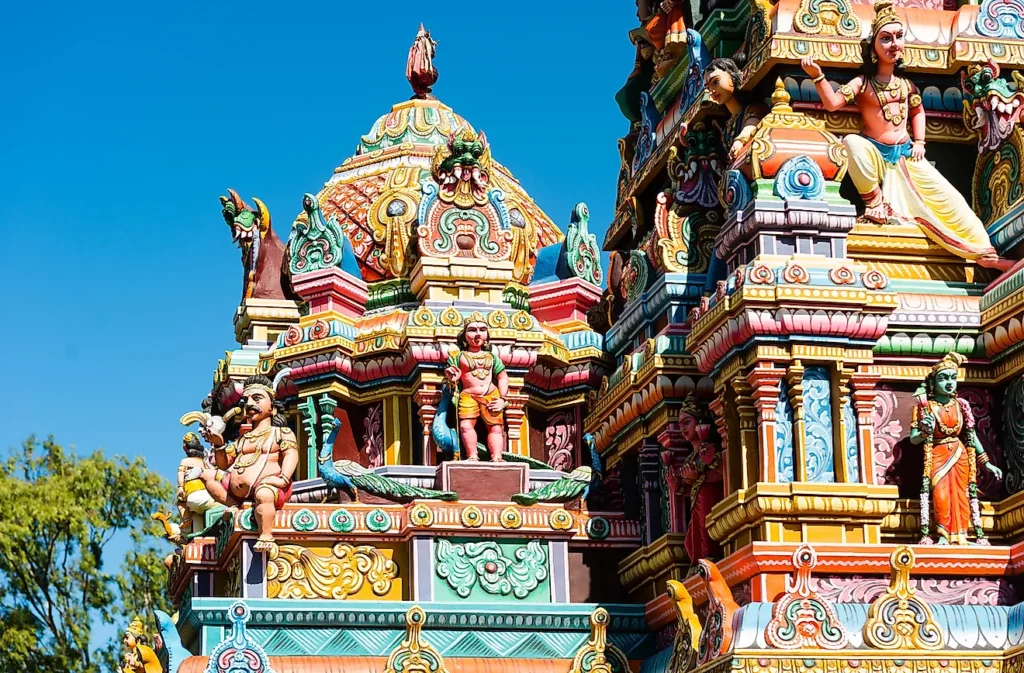 Mauritius; Photo- World Atlas
Mauritius; Photo- World AtlasBottom Line
As we’ve explored these havens of tranquillity, you might wonder if life in such peaceful places comes with its unique challenges, like developing the ability to fall asleep without the soothing white noise of police sirens, or learning to walk down streets without constantly checking over your shoulder.
Residents of these safe nations have been forced to redirect all that worry energy typically reserved for personal safety into other pursuits, like perfecting their work-life balance, engaging in passionate debates about renewable energy subsidies, or maintaining impeccably organised recycling systems.
Stay tuned with us. Further, follow us on social media for the latest updates.
Join us on Telegram Group for the Latest Aviation Updates. Subsequently, follow us on Google News
Top 10 Most Visited Countries in the World
The post Top 10 Safest Countries in the World in 2025 appeared first on Aviation A2Z.


















